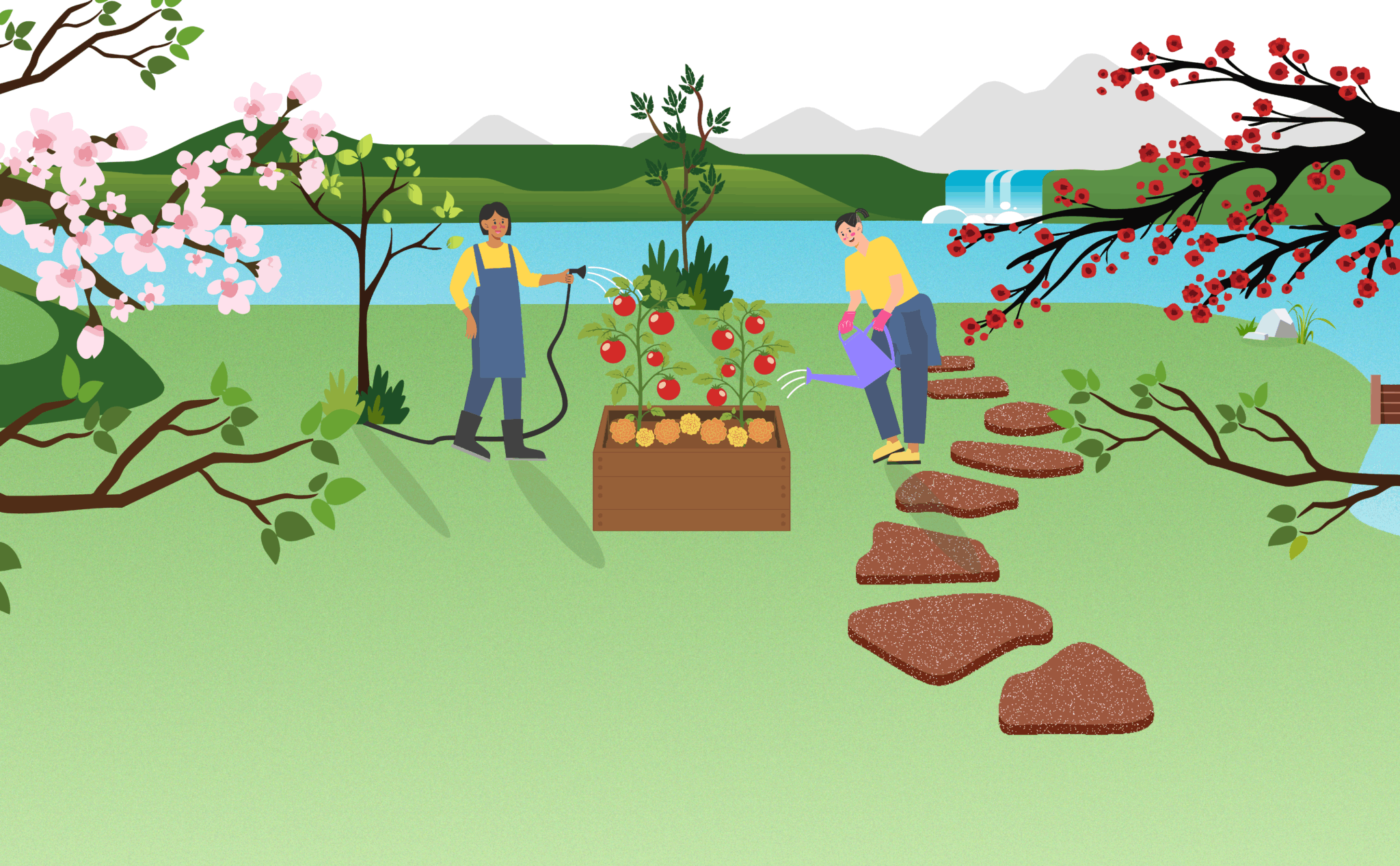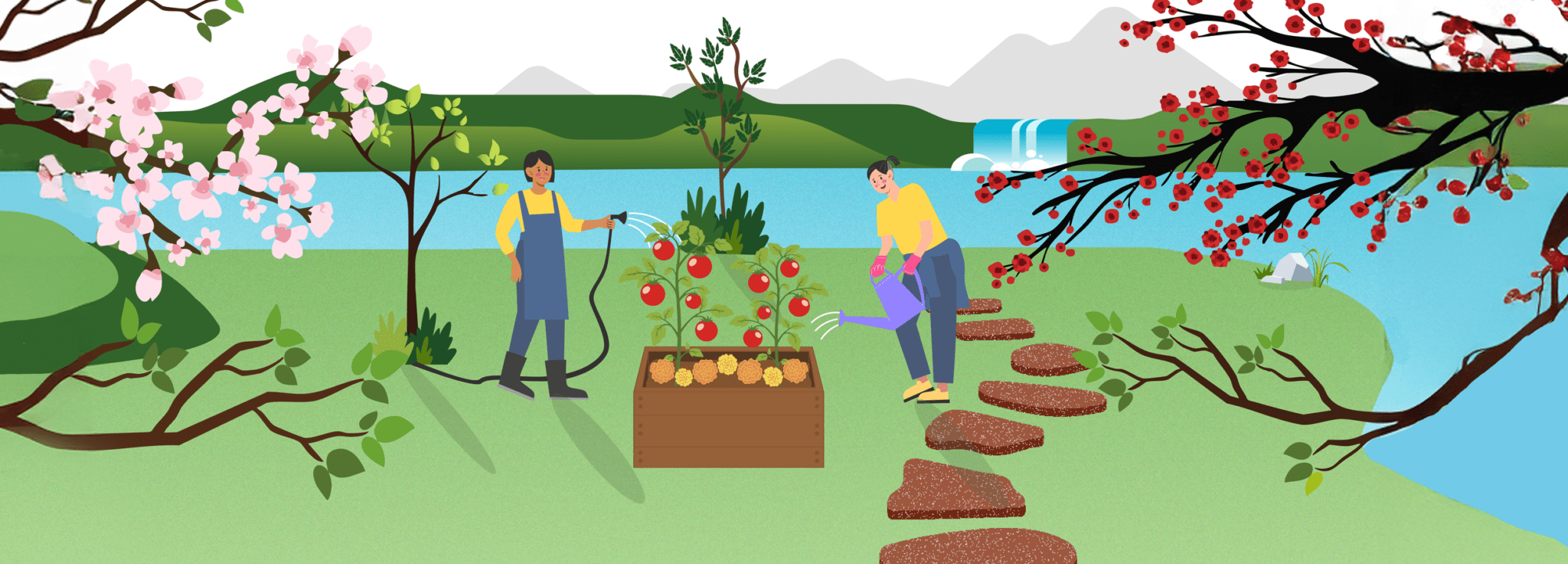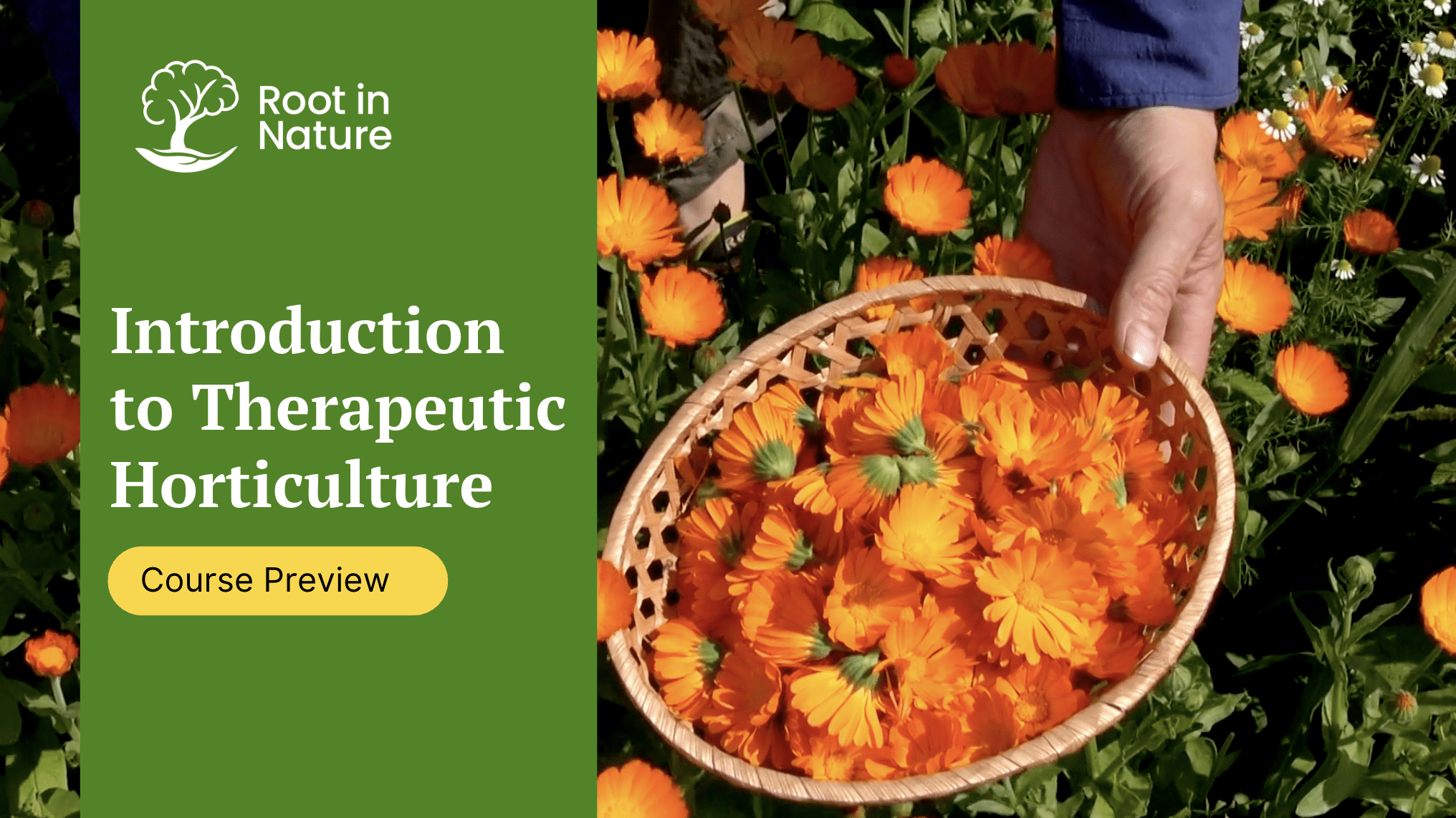

Integrator
Branching Out
You’re an experienced professional looking to expand your toolkit. You’ve seen the value of nature in enhancing health, and now you want to integrate therapeutic horticulture into your existing scope of care. This path is designed to help you apply plant-based practices in meaningful, measurable, and evidence-informed ways, all without disrupting your current role or credentials.

As a health or human services professional, you’ve likely seen how meaningful progress happens through connection—between people, and between people and the spaces that support their healing.
Whether you’ve already introduced plant-based activities into your practice, or you’re just beginning to explore how therapeutic horticulture (TH) could align with your clinical or community work, this path is here to help you grow with intention.
You’re not starting from scratch—you’re branching out.



Understanding Your Path: HT vs. TH
Before diving into next steps, it’s important to understand how therapeutic horticulture differs from horticultural therapy, and why that distinction matters for how you integrate this work into your role.
We’ve created a short video to walk you through the differences, so you can move forward with clarity, confidence, and alignment to your scope of practice.

Horticultural Therapy (HT)
is a clinical practice facilitated by a registered horticultural therapist. It involves structured, goal-oriented activities designed to achieve specific therapeutic outcomes within an established treatment or rehabilitation plan.
Therapeutic Horticulture (TH)
is a professionally facilitated practice that uses gardening, and other plant and nature-based activities to support people in working toward their health and wellbeing goals. Many clinicians also integrate therapeutic horticulture training with their professional credentials to support goal-driven, clinically meaningful outcomes.
You don’t need to become a registered horticultural therapist to bring evidence-based, nature-connected interventions into your work.
Therapeutic horticulture is a flexible, ethically grounded way to strengthen your practice while staying aligned with your current role and credentials. At Root in Nature, we recognize that many working professionals don’t have the time, interest, or financial capacity to pursue college-level horticultural therapy programs—especially when much of the content overlaps with prior education.
That’s why we focus on reducing barriers by offering accessible, affordable therapeutic horticulture education for allied health professionals who already bring strong clinical insight and real-world experience from their fields.
Root in Nature provides education and support in therapeutic horticulture, not clinical horticultural therapy. At the same time, the GrowTH Network is designed to be a valuable community for both TH and HT practitioners—because regardless of title or setting, we often share goals, approaches, and a commitment to safe, meaningful practice.
If, after watching the video, you decide horticultural therapy is the better fit, you can explore formal training through organizations such as the American and Canadian Horticultural Therapy Associations. And if therapeutic horticulture feels like the right next step, we’re here to support you.




Expand Your Toolkit with Therapeutic Horticulture
You already support clients’ health, function, and quality of life through your professional work. If you’re ready to deepen that support through nature-based practice, therapeutic horticulture can become a meaningful and practical addition to your toolkit.
Root in Nature offers two learning options for practitioners who want to integrate therapeutic horticulture into their work:
Option 1: Therapeutic Horticulture Foundations & Facilitation Course
The Therapeutic Horticulture Foundations & Facilitation Course provides a self-paced, accessible way to strengthen your understanding of therapeutic horticulture and begin applying nature-based activities in your setting. You’ll explore core concepts, learn how to create and adapt activities for different populations, and build practical skills you can use alongside your existing knowledge and responsibilities.
- 1 course
- 15-18 hours to complete
- 100% online and self-paced
Option 2: Therapeutic Horticulture Certificate Pathway
The Therapeutic Horticulture Certificate Pathway offers a more comprehensive, structured learning journey for those who want to move beyond integrating TH facilitation skills and develop deeper expertise in TH and program development and management. This supported pathway includes asynchronous online video lessons, assignments that reinforce your learning, expert insight and feedback, and defined certificates for practitioners seeking to embed TH more fully into their professional role.
- 3 courses:
- Introduction to Therapeutic Horticulture (8-10 hrs)
- Advanced Therapeutic Horticulture Facilitation Skills (30-32 hrs)
- Advanced Program Management & Development (30-32 hrs)
- Mixture of self-paced and instructor facilitated, peer cohort courses
Both options are delivered online and designed with allied health and care professionals in mind, allowing you to choose the depth and structure that best fits your practice, schedule, capacity, and goals.
As your use of therapeutic horticulture grows, you may also choose to explore ongoing professional development through theme-specific courses and mini-courses that support deeper facilitation skills, emerging areas of practice, and continued professional growth.
Looking to bring therapeutic horticulture to your whole team?
Check out our Team Training Program designed to help organizations implement TH confidently and consistently across staff roles.
Join the GrowTH Network
As an allied health professional, you’re not just learning something new—you’re layering therapeutic horticulture into an already dynamic care practice. That takes more than a course. It takes community, continued learning, and resources you can trust.
That’s what the GrowTH Network offers.This professional ecosystem is designed to help you confidently implement, adapt, and grow your therapeutic horticulture practice with support, while saving you time, energy, and expense at every stage. The GrowTH Network serves as the bridge between what you’ve learned and how you’ll apply it in real-world practice.


What the GrowTH Network Includes

Activity Database
A searchable collection of therapeutic horticulture activities categorized by population, setting, and therapeutic goal – ready to implement or adapt.

Resource Library
A robust curated collection of practical, customizable tools to support your programs.

Practitioner Support Calls
Monthly live, guided conversations with an experienced TH/HT professional and fellow practitioners to share challenges, ideas, and encouragement.

Online Events with Guest Experts
Ongoing professional development opportunities tailored to this field and your real-world questions.



Evidence at Your Fingertips
As a health professional, you understand the importance of clinical reasoning, measurable outcomes, and evidence-informed practice. If you’re planning to bring therapeutic horticulture into your workplace or care model, you’ll likely be asked: Does it really work?
The Root in Nature Research Database is designed to help you answer that question with clarity and confidence.
What You’ll Find
- Peer-reviewed studies highlighting the therapeutic impact of nature-based programs across physical, mental, and social domains
- Searchable tags by population (e.g., dementia, youth, veterans) and setting (e.g., long-term care, rehab, community health)
- Summarized insights that help you integrate evidence into your planning, documentation, or funding proposals
- Examples and data that align with your clinical or organizational goals—without requiring hours of searching
Whether you’re preparing to pitch a new program, soliciting program funding, looking to meet documentation standards, or simply want to stay aligned with best practices, the database gives you the backup you need to move forward with confidence.
Stay Connected
Subscribe to our newsletter for the latest research, practical strategies, community features and events.
Follow us on Instagram, YouTube and Linkedin for resource giveaways, TH in action and seasonal inspiration.
Explore our blog for fresh insights, deeper dives on topics and real-life stories to inspire your TH practice.

